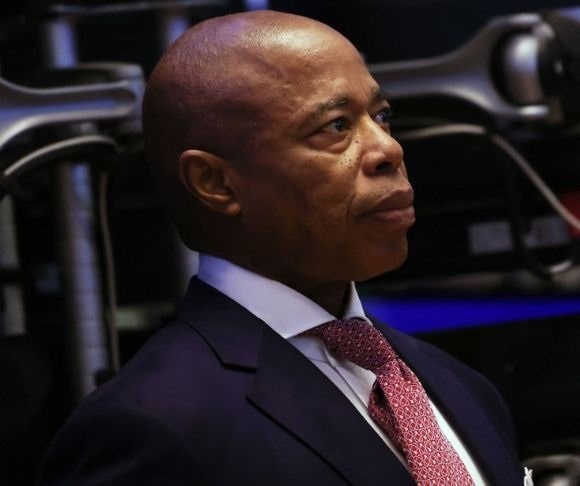Former beat cop and now mayor of the Big Apple Eric Adams is cracking down on the mentally ill in his city. Directing local authorities in the metropolis to detain and commit those they deem a danger to themselves and others, the mayor believes he is finally clearing up the disconnect where “policy, law, and accountability have not been clear.” As a result, the job of law enforcement and social work is reaching a new level of power over a city of 8.8 million, an indeterminate number of whom suffer from mental illness.
Adams discussed his plans during a brief speech last week and the following presser, explaining:
“People with severe and untreated mental illness who live out in the open, on the streets, in our subways — in danger and need. We see them every day and our city workers are familiar with their stories: The man standing all day on the street across from the building he was evicted from 25 years ago, waiting to be let in. The shadow boxer on the street corner in Midtown mumbling to himself as he jabs at an invisible adversary. These New Yorkers and hundreds of others like them are in urgent need of treatment, yet often refuse it when offered.”
 So, we’ll just snatch them and lock them away? Sort of. The directive the mayor sent to NYC employees, including police, EMS, fire, social services, and health departments, details that people that may “appear to be mentally ill” will be somewhat profiled. So, perhaps issue a preemptive warning for those eccentrics who may dress like homeless people – donning sweats and ratty hoodies – to up their fashion game.
So, we’ll just snatch them and lock them away? Sort of. The directive the mayor sent to NYC employees, including police, EMS, fire, social services, and health departments, details that people that may “appear to be mentally ill” will be somewhat profiled. So, perhaps issue a preemptive warning for those eccentrics who may dress like homeless people – donning sweats and ratty hoodies – to up their fashion game.
Not Everyone Is Happy with Eric Adams
Does NYC shoot first and then ask if the person meets the “danger” criteria? One non-profit, Housing Works, is glancing side-eyed at the mayor, tweeting: “What happens when someone refuses hospitalization? This seems like it boils down to letting the NYPD hospitalize people by force.” The mayor’s chief counsel, which may be needed now more than ever, has spoken: “They do not need to consent” to either detainment, diagnosis, or prescribing treatment.
Jumaane Williams, a public advocate for the city who was diagnosed as a child with attention deficit hyperactivity disorder (ADHD) and Tourette syndrome, and ran for governor this year, had a thing or two to say about Adams’ mandate: “The mayor’s announcement leaves many details unspecified, questions unanswered, and the administration must provide more information on the intentions, implementation, and non-police investment in its plan.”
And one doesn’t have to be soothsayer to foresee the New York Civil Liberties Union (NYCLU) would be barreling toward a skirmish. Executive Director Donna Lieberman of organization issued a lengthy statement about fundamental human rights:
“The federal and state constitutions impose strict limits on the government’s ability to detain people experiencing mental illness – limits that the mayor’s proposed expansion is likely to violate. Forcing people into treatment is a failed strategy for connecting people to long-term treatment and care.”
Lieberman accused Eric Adams of “playing fast and loose” and using smoke and mirrors like his once-beloved predecessor, Mayor Rudy Giuliani, to “police away homelessness and sweep individuals out of sight.”

Ronald Reagan (Photo by Bob Riha, Jr./Getty Images)
Give It a Shot or Respect Civil Liberties?
Ronald Reagan, Governor of California at the time, signed the Lanterman-Petris-Short Act into state law in 1967. It was sweeping legislation that ended the involuntary commitment of people with mental health disorders in the Golden State. Right or wrong, Reagan tied the hands of law enforcement in handling those deemed mentally ill who commit crimes. Today on the other side of the country, New York City battles the worst homelessness crisis since the Great Depression. And it’s no wonder there are calls for radical improvement by residents, who are afraid to ride the subway where severe attacks by mentally ill homeless people have become the norm of late.
But Adams is not deterred from implementing his policy. He continued his presser remarks by saying, “We have beds that are empty, so as long as we have beds that are empty, we need to fill those beds that are empty, and we need to always be calling for more.” And he doesn’t seem to care if the mentally ill want to stay out of the hands of the government.




